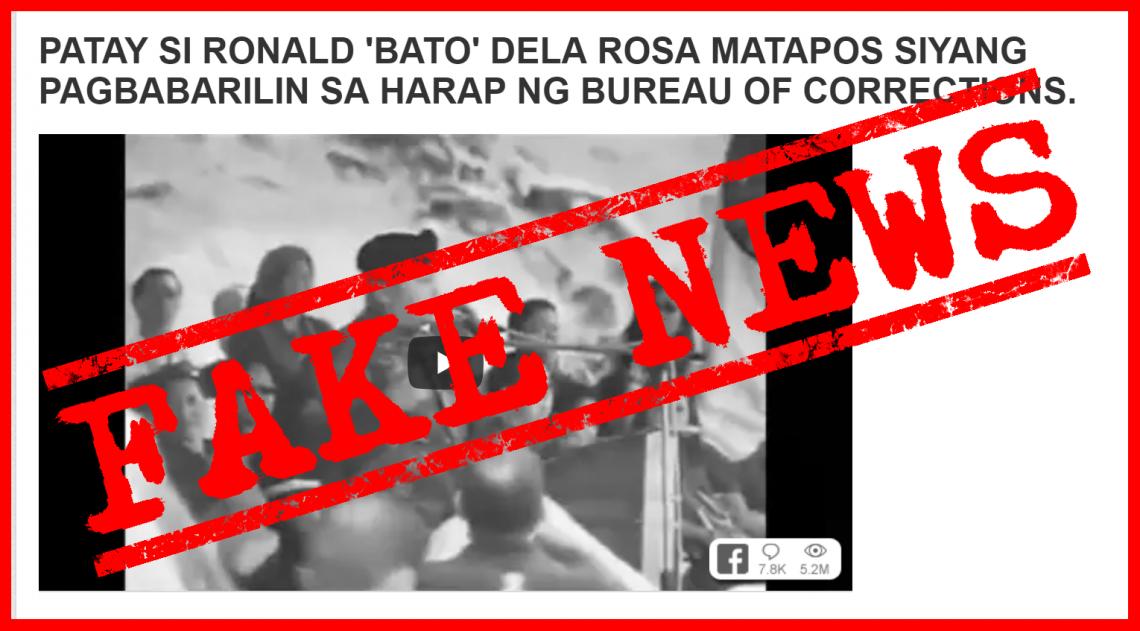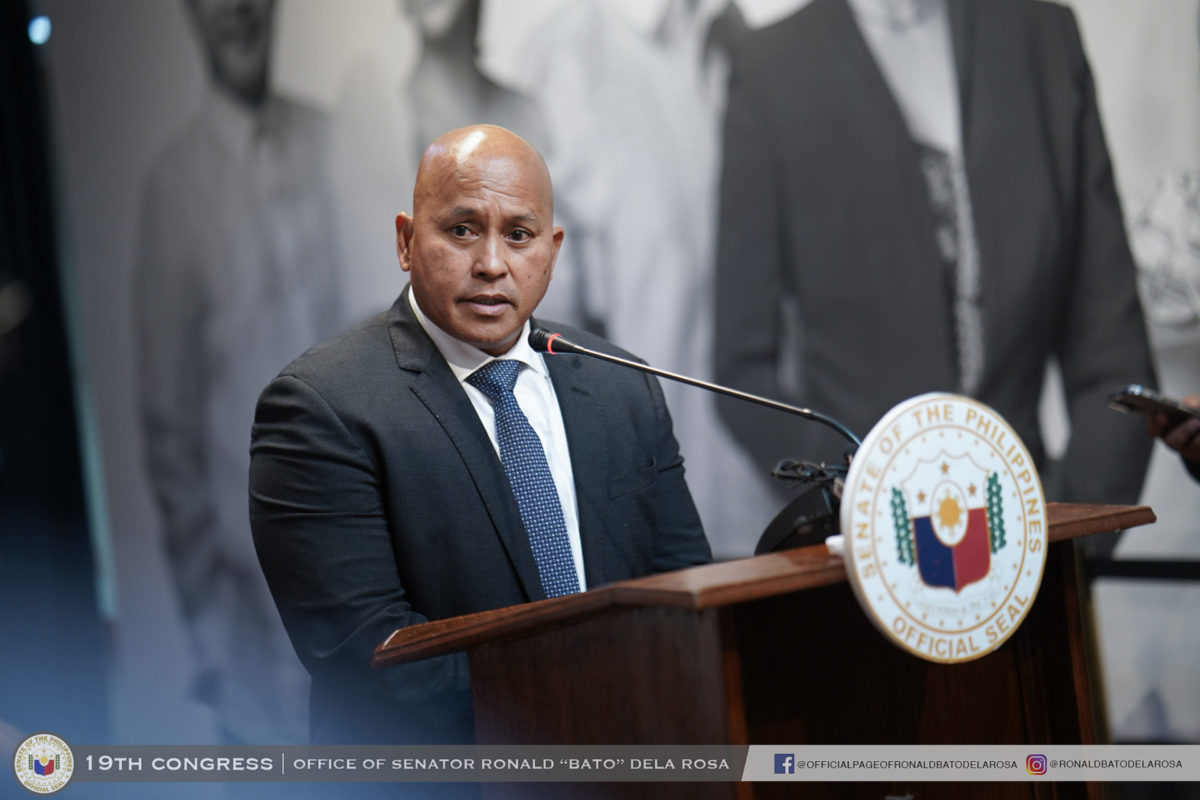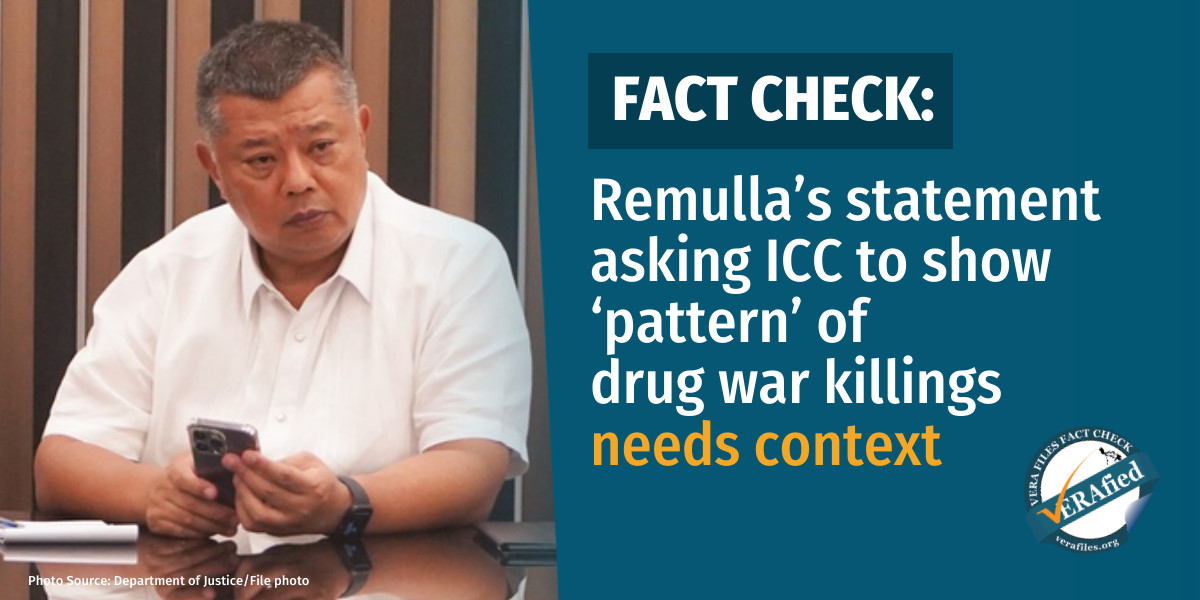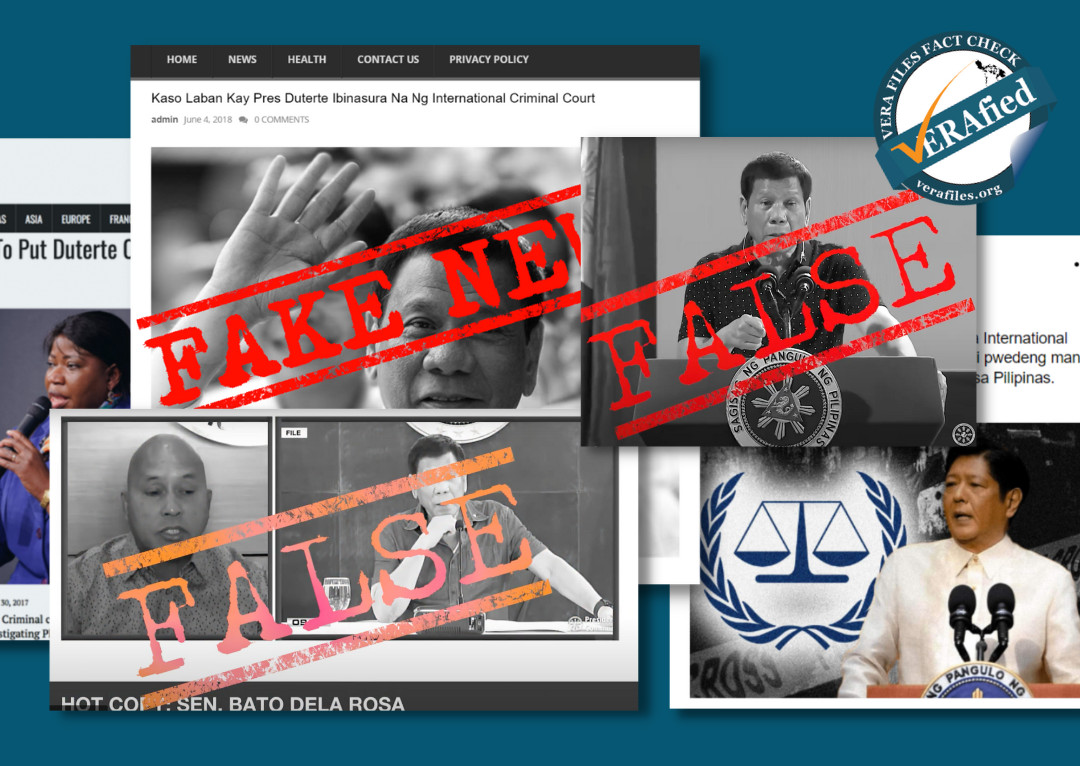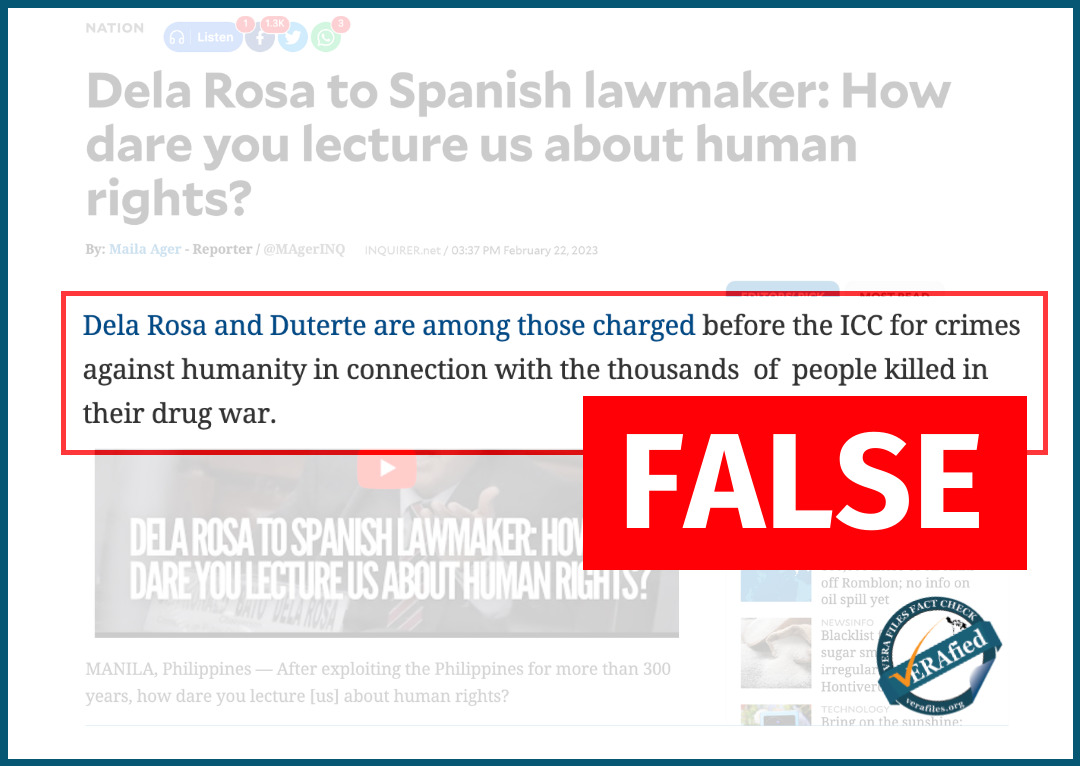Police Chief Ronald Dela Rosa, echoing a false claim made earlier by Foreign Affairs Secretary Alan Peter Cayetano, defined extrajudicial killings (EJKs) by wrongly invoking a Benigno S. Aquino III administrative order.
STATEMENT
In an Oct. 16 forum in Quezon City, Dela Rosa said:
“We stand by the definition of EJK as defined under Administrative Order anong number ‘yun? (what number is that?), defining EJKs as: number one, victims must be member of the cause-oriented groups, or member of the media, and it is being carried out either by a state or non-state actor. ‘Yun ang aming definition sa EJK (That’s our definition of EJKs.)”
Source: PNP Chief Ronald Dela Rosa at Kamuning Bakery Cafe, Oct. 16, 2017, listen from 0:46 to 1:11
FACT
Dela Rosa must be referring to AO No. 35, signed by former president Aquino in 2012, which created an inter-agency committee on extralegal killings and other human rights violations like enforced disappearances and torture.
Yet the order, also wrongly cited by Cayetano earlier, does not provide the standard definition of EJKs. (See VERA FILES FACT CHECK: Was the definition of EJKs changed under the Duterte administration?)
There is no law defining EJKs in the Philippines, but jurisprudence and international conventions outline what these are.
The Supreme Court in a 2007 ruling defined “extralegal” killings, the internationally accepted term for EJKs, as “killings committed without due process of law.”
The high court ruled:
“As such, these will include the illegal taking of life regardless of the motive, summary and arbitrary executions, “salvagings” even of suspected criminals, and threats to take the life of persons who are openly critical of erring government officials and the like.”
Source: Official Annotations to the Rule on the Privilege of the Writ of Amparo
The Minnesota Protocol, formally adopted by the United Nations in 1991, guides investigations of human rights violations around the world.
According to the Center for International Law, the Minnesota Protocol covers deaths from police operations, where these deaths happened under conditions of excessive use of force.
The Aquino AO cited by Dela Rosa was purposely limited in its definition of EJKs.
“When the (Aquino administration) defined EJK, in a very limited way, that was because their mandate was only for those who were killed because they were journalists or because of political leaning,” human rights lawyer Jose Manuel Diokno said in an earlier interview with VERA Files.
The definition was taken “out of context” by incumbent government officials, Diokno said.
Sources:
Interview with lawyer Jose Manuel Diokno, De La Salle University Law
Official Annotations to the Rule on the Privilege of the Writ of Amparo
PNP Chief Dela Rosa at Kamuning Bakery Cafe, Oct. 16
(Guided by the code of principles of the International Fact-Checking Network at Poynter, VERA Files tracks the false claims, flip-flops, misleading statements of public officials and figures, and debunks them with factual evidence. Find out more about this initiative.)


